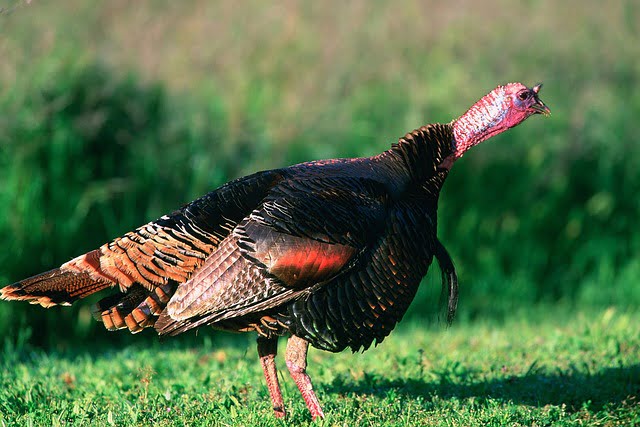
Do Turkeys Eat Ticks? Unveiling the Truth About a Turkey’s Diet
The question of whether turkeys eat ticks is a common one, especially for those concerned about tick populations in their yards or on their properties. As more people seek natural ways to control pests, understanding the dietary habits of animals like turkeys becomes increasingly important. This article delves into the eating habits of turkeys, specifically focusing on their consumption of ticks, and explores the benefits and limitations of relying on turkeys for tick control.
Understanding the Turkey Diet
Wild turkeys are omnivorous, meaning their diet consists of both plant and animal matter. Their food choices vary depending on the season, availability, and geographic location. During the spring and summer months, when insects are abundant, turkeys tend to consume more insects, including grasshoppers, beetles, caterpillars, and yes, ticks. In the fall and winter, their diet shifts to include more nuts, seeds, berries, and grains.
Young turkeys, known as poults, have a higher protein requirement than adults, so they rely heavily on insects for their growth and development. They actively forage for insects in leaf litter, grassy areas, and along the edges of forests. Adult turkeys also consume insects, but their diet is more varied.
Common Food Sources for Turkeys
- Insects (including ticks, grasshoppers, beetles, caterpillars)
- Nuts (acorns, beechnuts, hickory nuts)
- Seeds (sunflower seeds, weed seeds)
- Berries (blueberries, raspberries, blackberries)
- Grains (corn, wheat)
- Plant matter (leaves, stems, roots)
Do Turkeys Really Eat Ticks? The Evidence
While turkeys are known to consume a variety of insects, the question remains: do they actively seek out and eat ticks? The answer is yes, turkeys do eat ticks, but the extent to which they rely on ticks as a food source is debatable. Several studies and anecdotal evidence suggest that turkeys will consume ticks when they encounter them while foraging for other food sources. However, ticks are unlikely to be a primary food source for turkeys due to their small size and relatively low abundance compared to other insects.
Turkeys are opportunistic feeders, meaning they will eat whatever is readily available and easy to obtain. If ticks are present in an area where turkeys are foraging, they will likely be consumed along with other insects. However, turkeys are not specialized tick predators, and they do not actively hunt for ticks in the same way that some other animals, such as opossums, do. [See also: Opossums and Tick Control: A Natural Solution]
Factors Influencing Tick Consumption by Turkeys
- Tick abundance: The more ticks present in an area, the more likely turkeys are to encounter and consume them.
- Availability of other food sources: If other food sources are abundant, turkeys may not focus on eating ticks.
- Turkey population density: Higher turkey populations may lead to increased predation on ticks.
- Habitat: Turkeys are more likely to encounter ticks in areas with dense vegetation and leaf litter.
The Effectiveness of Turkeys for Tick Control
While turkeys do eat ticks, relying on them as a primary method of tick control is not recommended. Turkeys can contribute to reducing tick populations, but their impact is limited and inconsistent. Several factors influence the effectiveness of turkeys for tick control, including the size of the turkey population, the abundance of other food sources, and the specific species of tick present in the area.
Furthermore, turkeys can also contribute to the spread of ticks in some cases. Ticks can attach to turkeys and be transported to new areas, potentially leading to the establishment of new tick populations. Therefore, it is important to consider both the potential benefits and drawbacks of relying on turkeys for tick control.
Limitations of Using Turkeys for Tick Control
- Inconsistent predation: Turkeys do not consistently target ticks as a primary food source.
- Limited impact: The overall impact of turkeys on tick populations is relatively small.
- Potential for tick dispersal: Turkeys can transport ticks to new areas.
- Other considerations: Turkeys can damage gardens and crops, and they may attract predators.
Alternative and Complementary Tick Control Methods
Given the limitations of relying on turkeys for tick control, it is important to consider alternative and complementary methods. Integrated tick management strategies that combine multiple approaches are the most effective way to reduce tick populations and minimize the risk of tick-borne diseases. [See also: Integrated Tick Management: A Comprehensive Guide]
Some effective tick control methods include:
- Habitat modification: Clearing brush, removing leaf litter, and mowing lawns can reduce tick habitat.
- Chemical control: Applying insecticides to lawns and surrounding areas can kill ticks.
- Biological control: Introducing natural predators of ticks, such as nematodes and fungi, can help control tick populations.
- Personal protection: Wearing long sleeves and pants, using insect repellent, and performing regular tick checks can reduce the risk of tick bites.
Conclusion: Turkeys and Ticks – A Complex Relationship
In conclusion, while turkeys do eat ticks, they are not a reliable or effective solution for tick control on their own. Turkeys are opportunistic feeders that consume a variety of insects, including ticks, but their impact on tick populations is limited and inconsistent. Relying solely on turkeys for tick control can be problematic, and it is important to consider alternative and complementary methods. A comprehensive approach to tick management that combines multiple strategies is the most effective way to reduce tick populations and minimize the risk of tick-borne diseases. Understanding the complex relationship between turkeys and ticks is crucial for making informed decisions about tick control strategies.
